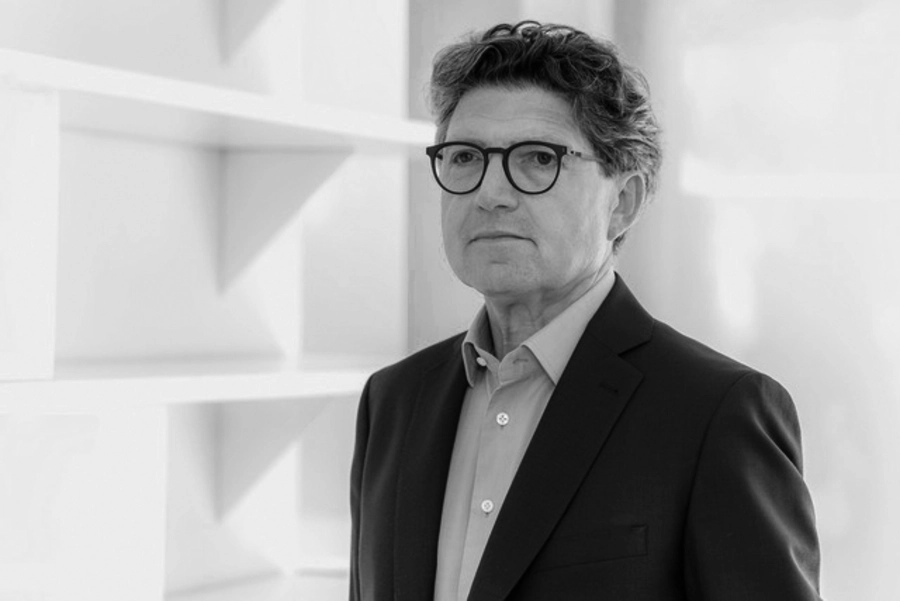Winter Semester 2024/25
Korbinians Kolleg 2024/25
Crises and wars are shaking the world, creating risks and uncertainties that were unimaginable just a few years ago. Who would have thought that Europe would once again experience war? For more than two years, the conflict in Ukraine has raged on, affecting us in many indirect ways. Key issues include migration, hybrid warfare, disinformation, and energy policy. The economic impact of the war is also being felt. How can liberal democracies protect themselves from the dangers that wars bring? The Korbinians Kolleg – On Contemporary Issues delves into the pressing risks we face today. Renowned scholars will offer insights into the causes and consequences of these challenges.
Wars and Crises: The Risks of the Present
You can register here for the upcoming lectures.
Guest Lectures and Dates 2024/25
-
Dr. Erich Vad Brigadegeneral A.D.
"Deterring or Terrifying? Europe without Security"
-
October 18, 2024
What does the South China Sea have to do with the Crimean Peninsula? Are the USA still our friend and ally? Speaking of which: Under which flag is Europe fighting? Dr. Erich Vad, retired Brigadier General and military policy advisor to former Chancellor Angela Merkel, provides answers: Europe needs sustainable security. And that doesn't come by itself but only if we work for it; hopefully, it also comes from Germany. Because if we want to preserve the life we know and our freedom, we need to understand and act in our own – both German and European – interests. This makes us a nation and a continent that has the strength and influence to find and implement solutions.
Erich Vad outlines ways to prevent wars and secure peace through credible military deterrence, defense capabilities, and diplomacy.
His recently published book, "Deterring or Terrifying? Europe without Security", is a recommended read for anyone who wants to know what it takes to strengthen Europe and maintain peace.
-
Prof. Dr. Astrid Séville
"Heroism in Liberal Democracy – A Delicate Idea?"
-
November 15, 2024
Critics and enemies of liberal democracy repeatedly disparage it, accusing it of softness and decadence. Western societies, they say, are no longer willing to make sacrifices, and they lack a concept of nation, honor, or heroism. Beyond these politically motivated slanders, there are academic descriptions of “post-heroic societies” where the military, military service, and the willingness to fight have become questionable, and where the narrative of progress is dominated by peaceful conflict resolution.
Now, the geopolitical landscape is marked by conflicts and wars in which pacifist, liberal-egalitarian forces clash with heroic, aggressive-authoritarian ones. Do liberal-democratic societies need to return to an ideal of readiness to fight and sacrifice in order to defend themselves and their values? How can something like a “re-heroization” be conceived? This lecture explores these questions and presents reflections on the delicate idea of a new heroism.
-
Prof. Dr. Dr. H.C. Clemens Fuest
How Can Germany Secure Economic Prosperity in the Future?
-
December 13, 2024
The German economy is facing significant challenges. Demographic change, climate change, and the digitalization of the economy have been issues for business and politics for some time. Current crises have added geopolitical tensions, protectionism, energy supply shortages, and growing defense burdens. Where does Germany stand in addressing these challenges, and what needs to be done to secure economic prosperity under these conditions? These questions are at the core of the lecture.
-
Dr. Ralf Wintergerst
Cybersecurity: The Dark Side of Technological Progress
-
January 31, 2025
The question of how we can still keep pace with the speed of technological revolutions has many answers and aspects, but much remains unanswered. The ever-widening gap between societies, countries, and companies that master digital technologies and those dependent on them grows daily. And ultimately: How do we, as people, citizens, and users of digital technologies, deal with the dark sides of these technological conveniences? What impact does Artificial Intelligence have on the digital world?
The lecture offers insights and outlooks into the digital world, the threat posed by cyberattacks, and the influence of Artificial Intelligence on our digital infrastructures. The question is, what can we do ourselves to protect ourselves in the digital world?
-
Prof. Dr. Christoph Safferling
Syria, Ukraine, Gaza: International Law and Modern Warfare Today
-
February 14, 2025
In the past ten years, armed conflicts around the world have significantly increased, with international law playing a crucial role. Legal proceedings are being initiated before the International Court of Justice, the International Criminal Court is gaining jurisdiction to prosecute war crimes, and national courts are also bringing war criminals to justice. There is not only an arrest warrant for the current President of the Russian Federation, Vladimir Putin, but also Germany must defend itself in court against accusations of aiding genocide. What are the differences between these cases, and what significance do these legal disputes hold for war and peace? What role does Germany play, and why is the history of the 20th century particularly relevant in this context?
-
Prof. Dr. Ruud Koopmans
Why Immigration to Europe Is Neither Humanely Just Nor Economically Efficient – And What Needs to Change
-
March 15, 2025
For demographic and economic reasons, the countries of the European Union – especially Germany – need significant immigration. As a relatively wealthy continent with historical responsibilities, Europe also has the humanitarian duty to contribute to alleviating the suffering of refugees and displaced persons worldwide. While Europe and Germany are indeed major destinations for immigration, this process largely occurs in an uncontrolled manner and is marked by significant fluctuations, making successful integration more difficult. Moreover, the composition of this immigration is neither fair nor aligned with labor market demands. Europe has so far been unsuccessful in attracting enough skilled workers from third countries. Many immigrants who do arrive are asylum seekers who lack the qualifications needed for successful integration into the labor market. This form of immigration is also not humanely just, as the most vulnerable refugees never reach Europe.
These issues create a vicious cycle, in which uncontrolled migration and the accompanying integration problems give rise to right-wing populist parties, further reducing Europe’s attractiveness for qualified immigrants. How can Europe, and how can Germany, truly – and not just rhetorically – become a country of immigration where migration occurs in a controlled and measured way, benefiting both immigrants and the receiving society, and supported by broad political consensus? This is the key question of immigration policy, one that will determine whether immigration in Germany and Europe remains a divisive social issue or actually helps secure the future of our continent.
Academic Curator
PROF. DR. WILHELM VOSSENKUHL
Friendship
Surely, we couldn't have launched Korbinians Kolleg without becoming friends first. The term 'friendship' has become ambiguous and devalued in the age of social media. Online 'friends' are often mere acquaintances without any real obligations. Virtually anyone can become a 'friend' with anyone else around the globe. It's quick, like all things superficial, and commits one to nothing.
Timeline and Registration for Current Lectures
From 5.30 pm | Admission and Get-Together
6.30 pm -6.40 pm | Welcome by Korbinian Kohler
6.40 pm – 7 pm | Introduction by Prof. Dr. Wilhelm Vossenkuhl
7 pm – 7.45 pm | Keynote Speech by Guest Speaker
7.45 pm – 8.15 pm | Discussion
8.30 pm - midnight | Exclusive Gala Dinner
Hotel guests and external guests can attend the lecture free of charge until 8.15 pm, with a registration 24 hours in advance upon request and subject to availability.
Dresscode: smart casual
Book Your Participation:
Accreditation Dinner
For an exclusive dinner in an intimate setting with the possibility for discussion you can register with us:
event(at)bachmair-weissach.com.
190 Euro per Person
Maximum Number of Participants: 20 Guests
The speaker, Professor Vossenkuhl and Korbinian Kohler will be present.
Art & Culture
Korbinians Kolleg
We look forward to welcoming you to the SPA & RESORT BACHMAIR WEISSACH in the 2023/2024 winter semester for lectures and subsequent discussions. We will announce the upcoming semester programme soon.


